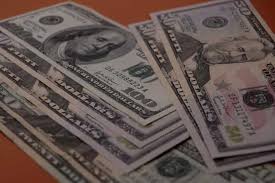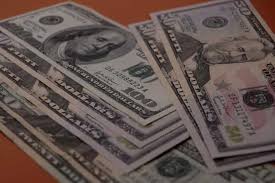
The fallout from the Russia-Ukraine conflict has just pushed two of the world's poorest countries into full-fledged crises, and the list of those at risk - and the line at the IMF's door - will only grow longer from here.
They may be far removed from the war in Ukraine, but the mass resignation of Sri Lanka's cabinet on Monday read more and Pakistan's Prime Minister Imran Khan's desperate weekend manoeuvring to escape his dismissal read more demonstrate how far the economic damage reaches.
Both Sri Lanka and Pakistan have seen public outrage over economic mismanagement reach a boiling point, but there is a lengthy list of other countries that are also in danger.
While a few countries were already facing debt issues as a result of the COVID pandemic, the war's subsequent rise in oil and food prices has likely exacerbated the situation.
Turkey, Tunisia, Egypt, Ghana, Kenya, and other countries that import the majority of their oil and gas, as well as basic foodstuffs like wheat and corn, have all seen their prices rise by between 25 per cent and 40 per cent this year, have also been hit hard.
In recent weeks, rising import costs and subsidies for basic necessities had already persuaded Cairo to weaken its currency by 15 per cent and seek IMF assistance. Tunisia and a long-resisting Sri Lanka have also requested help.
Ghana, which is still hesitant to approach the Fund, is watching its currency fall, while Pakistan, which already has 22 IMF programmes under its belt, is almost guaranteed to need more now that it has descended into chaos.
"This energy shock is certainly contributing to the political uncertainty in Sri Lanka and Pakistan," said Renaissance Capital's chief economist Charlie Robertson, flagging it as a key factor for both Egypt and Ghana too.
"It wouldn't surprise me if more countries were impacted," he added, citing Jordan as well and Morocco where a relatively sizable middle class makes it sensitive to political change.
Kristalina Georgieva, the IMF's Managing Director, has issued a harsh warning that "conflict in Ukraine means hunger in Africa."
The World Bank, the IMF's sister organisation, has also warned that a dozen of the world's poorest countries may fail in the coming year, describing it as "the greatest spate of debt problems in developing economies in a generation."
The Institute of International Finance (IIF) believes that overindebted "border" economies, as the least developed countries are known, currently owe $3.5 trillion, or $500 billion more than pre-pandemic levels.
Prior to the pandemic, Pakistan and Sri Lanka had already spent the equivalent of 3.4 per cent and 2.2 per cent of their respective GDPs on energy.
The figure was considerably higher in Turkey, at 6.5 percent, and with oil prices above $100 a barrel for months, the pressures are increasing.
According to the IIF, every additional $10 spent on a barrel of oil contributes 0.3 percent to Turkey's current account deficit. It is 1.3 per cent in Lebanon, while Fitch predicts that Tunisia's electricity subsidies would rise to above 1.8 percent of GDP this year, up from 0.8 per cent last year.
Food prices are also a vexing issue. As countries emerged from lockdowns, they were already rising, exacerbated in certain areas by droughts.
With Ukraine and Russia accounting for 29 per cent of global wheat exports and 19% of global maize shipments, prices have increased by another 25 per cent-30 per cent this year.
Egypt imports nearly 60 per cent of its wheat, with four-fifths coming from Russia and Ukraine. President Abdel Fattah al-government Sisi's has recently regulated bread prices to manage spiralling food expenses after weakening its currency and contacting the IMF.
"For many countries these (energy and food price) rises will have repercussions for budgets, for subsidies and for political and social stability." said Viktor Szabo, an emerging market portfolio manager at abrdn in London.
"If you don't control prices you can have unrest, just think back to the Arab Spring and the role of food prices there."
With global borrowing costs fast rising as major central banks begin to raise interest rates, Max Castle, a fixed income portfolio manager at Mediolanum Irish Operations, believes that numerous emerging market commodities importers may have little choice but to seek assistance.
"It is the right situation for the IMF to intervene supporting the more vulnerable countries – particularly the ones with a current account deficit," he said.
(Source:www.usnews.com)
They may be far removed from the war in Ukraine, but the mass resignation of Sri Lanka's cabinet on Monday read more and Pakistan's Prime Minister Imran Khan's desperate weekend manoeuvring to escape his dismissal read more demonstrate how far the economic damage reaches.
Both Sri Lanka and Pakistan have seen public outrage over economic mismanagement reach a boiling point, but there is a lengthy list of other countries that are also in danger.
While a few countries were already facing debt issues as a result of the COVID pandemic, the war's subsequent rise in oil and food prices has likely exacerbated the situation.
Turkey, Tunisia, Egypt, Ghana, Kenya, and other countries that import the majority of their oil and gas, as well as basic foodstuffs like wheat and corn, have all seen their prices rise by between 25 per cent and 40 per cent this year, have also been hit hard.
In recent weeks, rising import costs and subsidies for basic necessities had already persuaded Cairo to weaken its currency by 15 per cent and seek IMF assistance. Tunisia and a long-resisting Sri Lanka have also requested help.
Ghana, which is still hesitant to approach the Fund, is watching its currency fall, while Pakistan, which already has 22 IMF programmes under its belt, is almost guaranteed to need more now that it has descended into chaos.
"This energy shock is certainly contributing to the political uncertainty in Sri Lanka and Pakistan," said Renaissance Capital's chief economist Charlie Robertson, flagging it as a key factor for both Egypt and Ghana too.
"It wouldn't surprise me if more countries were impacted," he added, citing Jordan as well and Morocco where a relatively sizable middle class makes it sensitive to political change.
Kristalina Georgieva, the IMF's Managing Director, has issued a harsh warning that "conflict in Ukraine means hunger in Africa."
The World Bank, the IMF's sister organisation, has also warned that a dozen of the world's poorest countries may fail in the coming year, describing it as "the greatest spate of debt problems in developing economies in a generation."
The Institute of International Finance (IIF) believes that overindebted "border" economies, as the least developed countries are known, currently owe $3.5 trillion, or $500 billion more than pre-pandemic levels.
Prior to the pandemic, Pakistan and Sri Lanka had already spent the equivalent of 3.4 per cent and 2.2 per cent of their respective GDPs on energy.
The figure was considerably higher in Turkey, at 6.5 percent, and with oil prices above $100 a barrel for months, the pressures are increasing.
According to the IIF, every additional $10 spent on a barrel of oil contributes 0.3 percent to Turkey's current account deficit. It is 1.3 per cent in Lebanon, while Fitch predicts that Tunisia's electricity subsidies would rise to above 1.8 percent of GDP this year, up from 0.8 per cent last year.
Food prices are also a vexing issue. As countries emerged from lockdowns, they were already rising, exacerbated in certain areas by droughts.
With Ukraine and Russia accounting for 29 per cent of global wheat exports and 19% of global maize shipments, prices have increased by another 25 per cent-30 per cent this year.
Egypt imports nearly 60 per cent of its wheat, with four-fifths coming from Russia and Ukraine. President Abdel Fattah al-government Sisi's has recently regulated bread prices to manage spiralling food expenses after weakening its currency and contacting the IMF.
"For many countries these (energy and food price) rises will have repercussions for budgets, for subsidies and for political and social stability." said Viktor Szabo, an emerging market portfolio manager at abrdn in London.
"If you don't control prices you can have unrest, just think back to the Arab Spring and the role of food prices there."
With global borrowing costs fast rising as major central banks begin to raise interest rates, Max Castle, a fixed income portfolio manager at Mediolanum Irish Operations, believes that numerous emerging market commodities importers may have little choice but to seek assistance.
"It is the right situation for the IMF to intervene supporting the more vulnerable countries – particularly the ones with a current account deficit," he said.
(Source:www.usnews.com)





